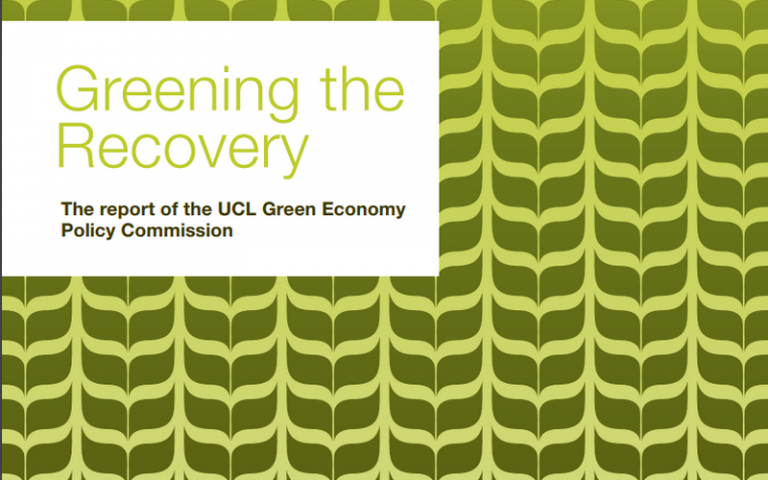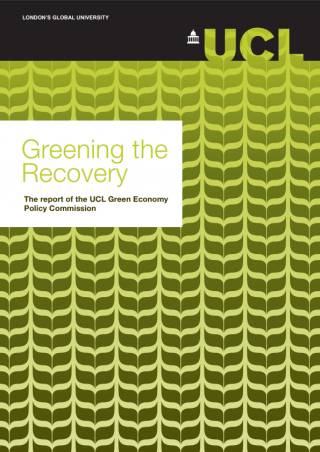Green Economy Policy Commission
The UCL Green Economy Policy Commission brought together academics with expertise in economics, the built environment, engineering, political science, innovation and resource efficiency.

10 May 2013
The UCL Green Economy Policy Commission brought together academics with expertise in economics, the built environment, engineering, political science, innovation and resource efficiency to consider how the UK might implement policies that will support a ‘green economy' – that is, an economy which is low-carbon, resource-efficient and supports a healthy, diverse environment and a high quality of life.
About
By adopting multiple perspectives and a range of expertise, the Commission sought to explore the frameworks and high-level policy approaches by which the Government could pursue a green economy and ensure the UK’s international competitiveness in terms of innovation and infrastructure development.
The Commission also engaged politicians, policymakers and business representatives in its discussions.
The Commission concludes that: a new information system on material and resource use in the economy is needed; that the development of infrastructure to support the deployment of low-carbon technology should be a priority; that Government has an important role in driving green innovation through an active green industrial strategy; and that a clear long-term pathway should be set to encourage business investment in the green economy.
As the UK starts to show signs of economic recovery, the time is right for the government to accelerate that recovery by setting out a coherent economic strategy for the 21st century, one rooted in resource efficiency, climate stability and environmental quality.
The UCL Green Economy Policy Commission was supported by UCL Public Policy, which seeks to bring UCL's academic expertise to bear on pressing public policy challenges by integrating knowledge and evidence from across disciplines to inform policy.
Outputs and impact
- Comment piece for The Conversation by Prof Paul Ekins
- Jonathon Porritt blogs, Commission Member and Founding Director of Forum for the Future
- Greening the Recovery is reported on Why Green Economy? and Click Green
- The Green Economy Policy Commission was presented at the three main party conferences in autumn 2013. Will McDowall (Senior Adviser to the Commission) offers his reflections on the Liberal Democrat party conference – and sharing a platform with Secretary of State Vince Cable. Greening the UK economy: Challenges and opportunities
- Prof Paul Ekins (Chair of the Commission) has written a piece for Left Foot Forward setting out the route to a green economy.
- Greening the Recovery has been cited in policy documents worldwide, including by the Grantham Institute a UK research centre, the Hoover Institution a US think tank, the Institute of World Economy and International Relations in Russia and the German Development Institute.
- The Green Economy Policy Commission was cited by the Institute of Environmental Management & Assessment (IEMA) in their response to the consultation on the process and methodology of the National Infrastructure Assessment.
 Close
Close


